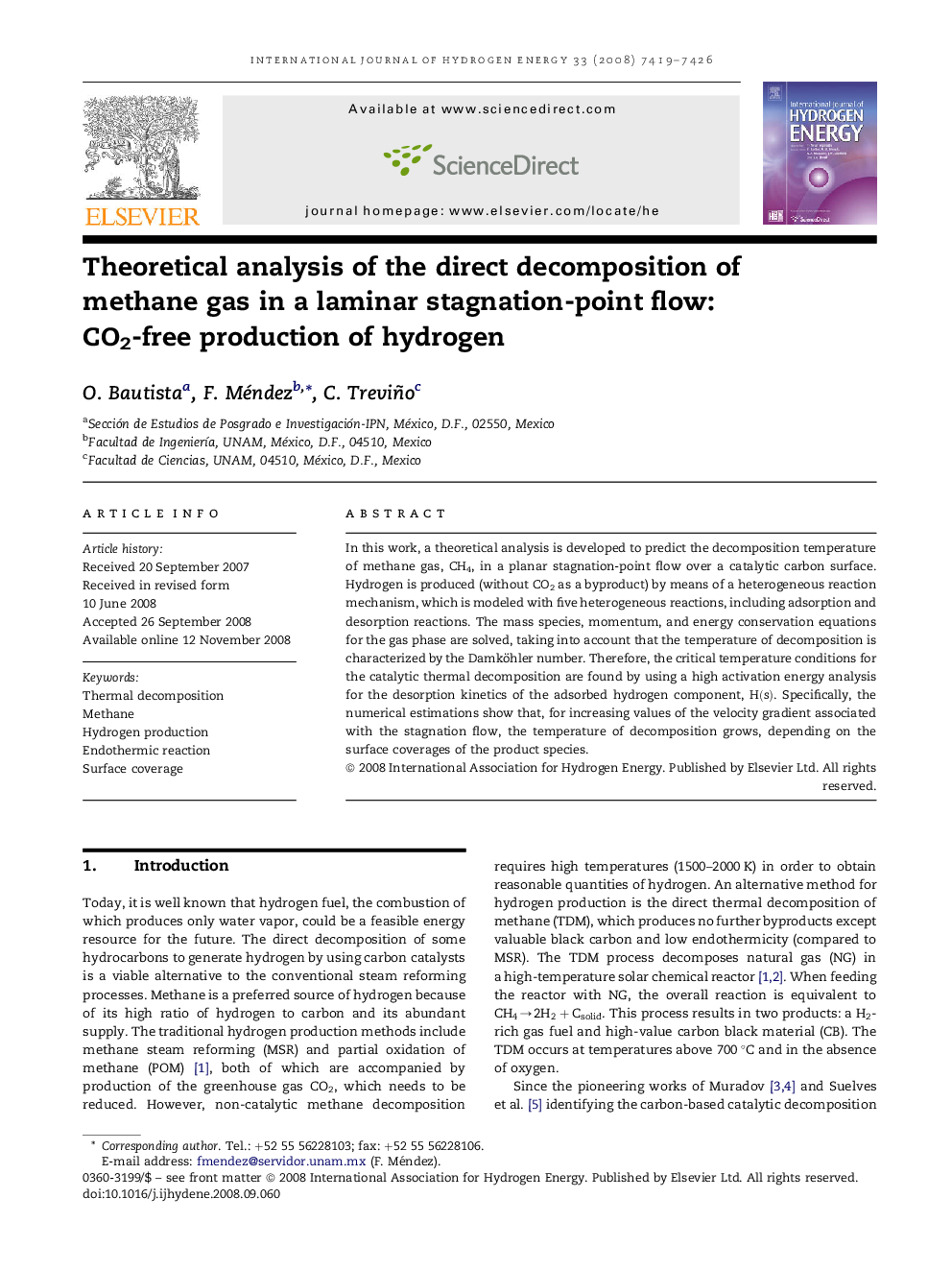| Article ID | Journal | Published Year | Pages | File Type |
|---|---|---|---|---|
| 1281338 | International Journal of Hydrogen Energy | 2008 | 8 Pages |
In this work, a theoretical analysis is developed to predict the decomposition temperature of methane gas, CH4, in a planar stagnation-point flow over a catalytic carbon surface. Hydrogen is produced (without CO2 as a byproduct) by means of a heterogeneous reaction mechanism, which is modeled with five heterogeneous reactions, including adsorption and desorption reactions. The mass species, momentum, and energy conservation equations for the gas phase are solved, taking into account that the temperature of decomposition is characterized by the Damköhler number. Therefore, the critical temperature conditions for the catalytic thermal decomposition are found by using a high activation energy analysis for the desorption kinetics of the adsorbed hydrogen component, H(s)H(s). Specifically, the numerical estimations show that, for increasing values of the velocity gradient associated with the stagnation flow, the temperature of decomposition grows, depending on the surface coverages of the product species.
